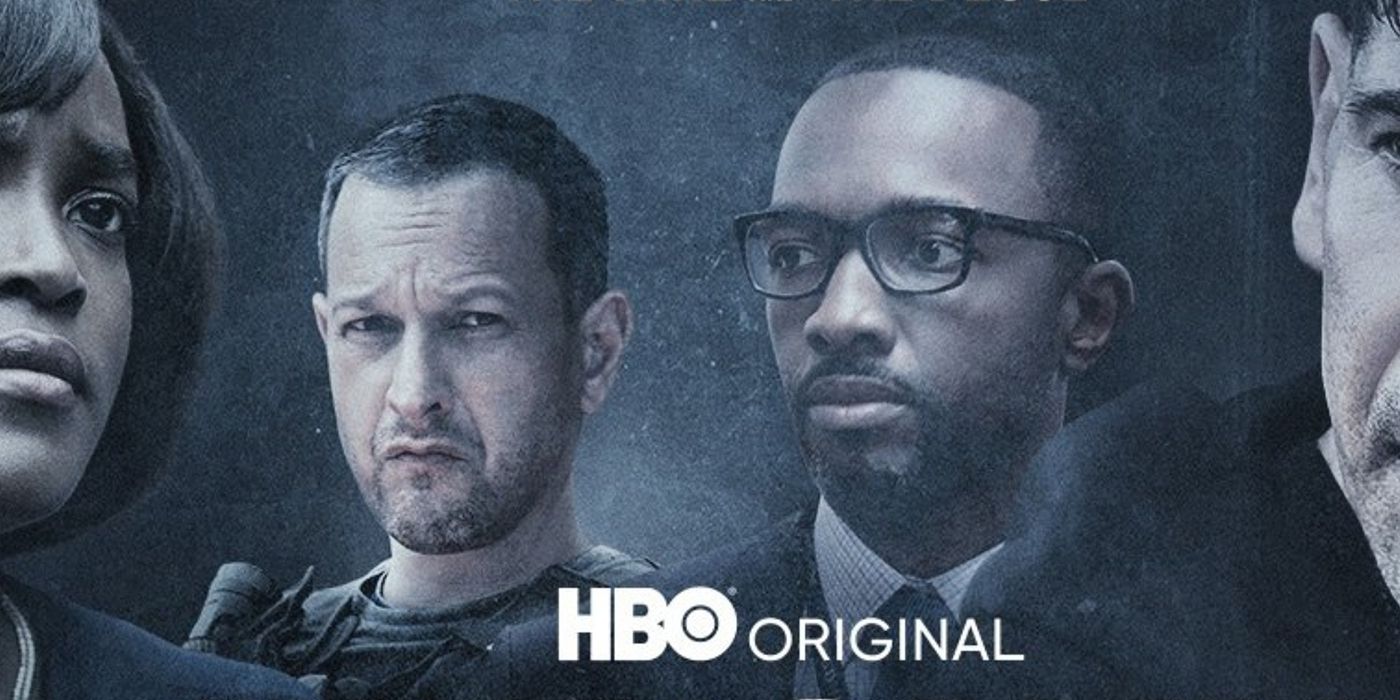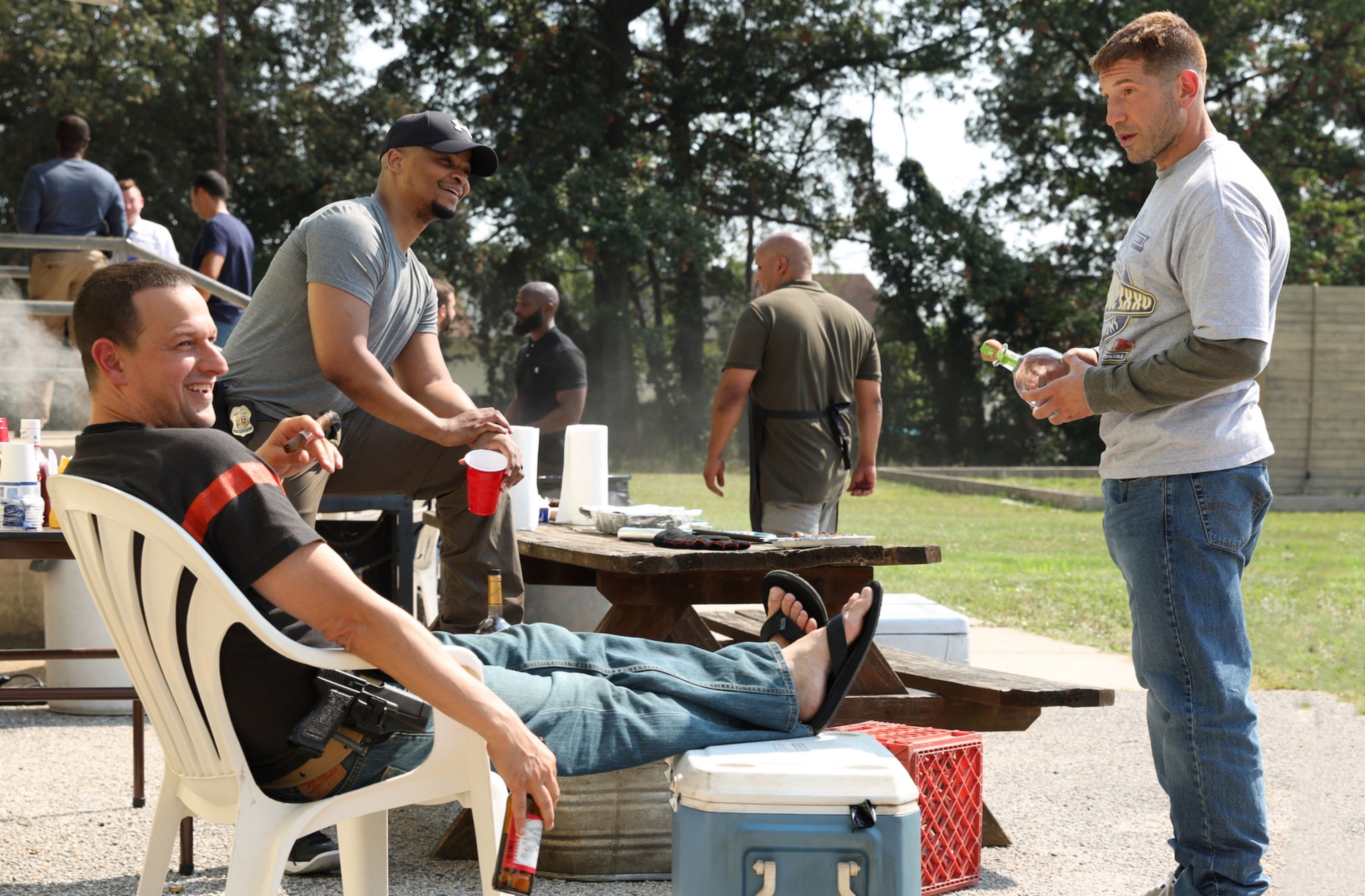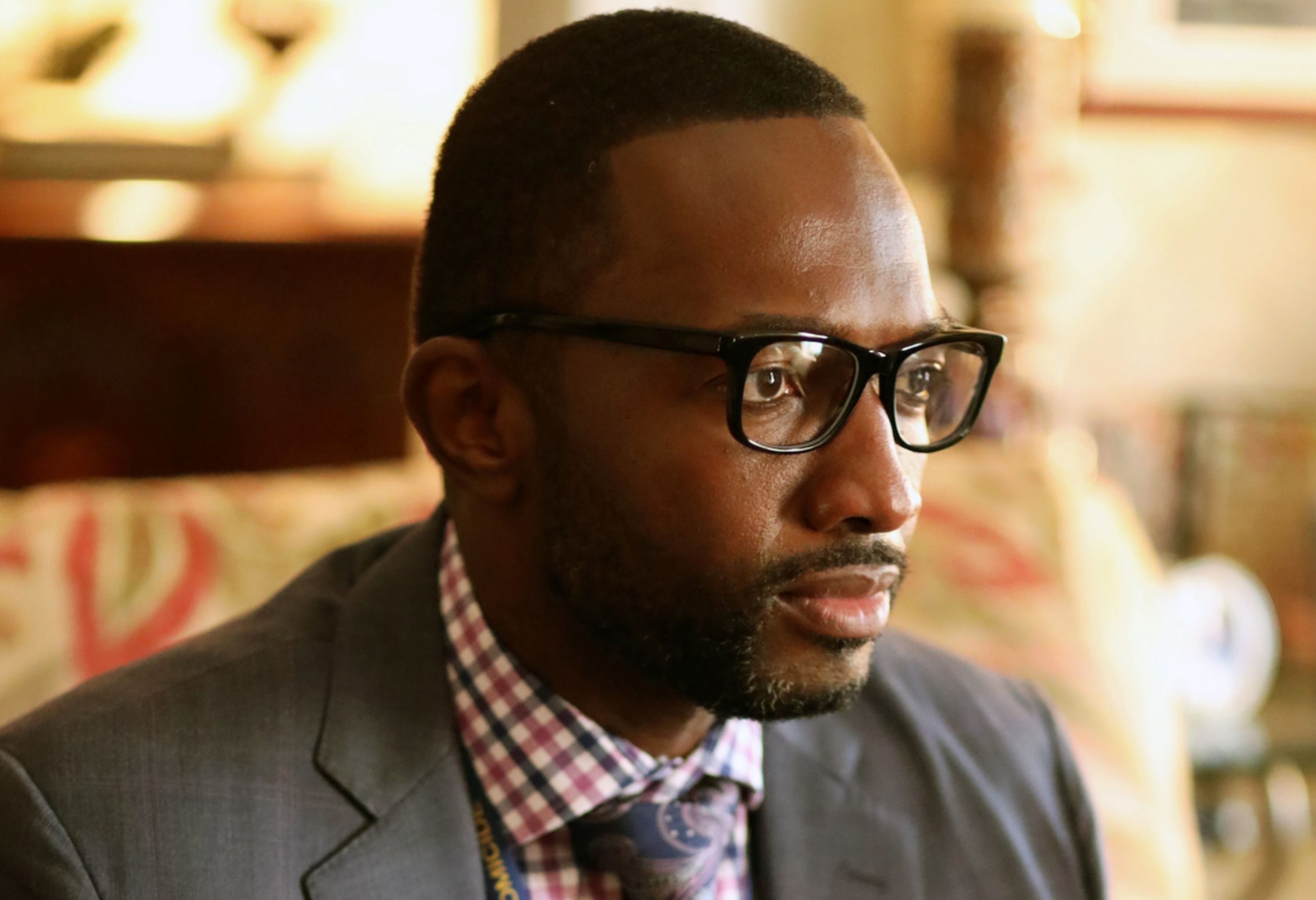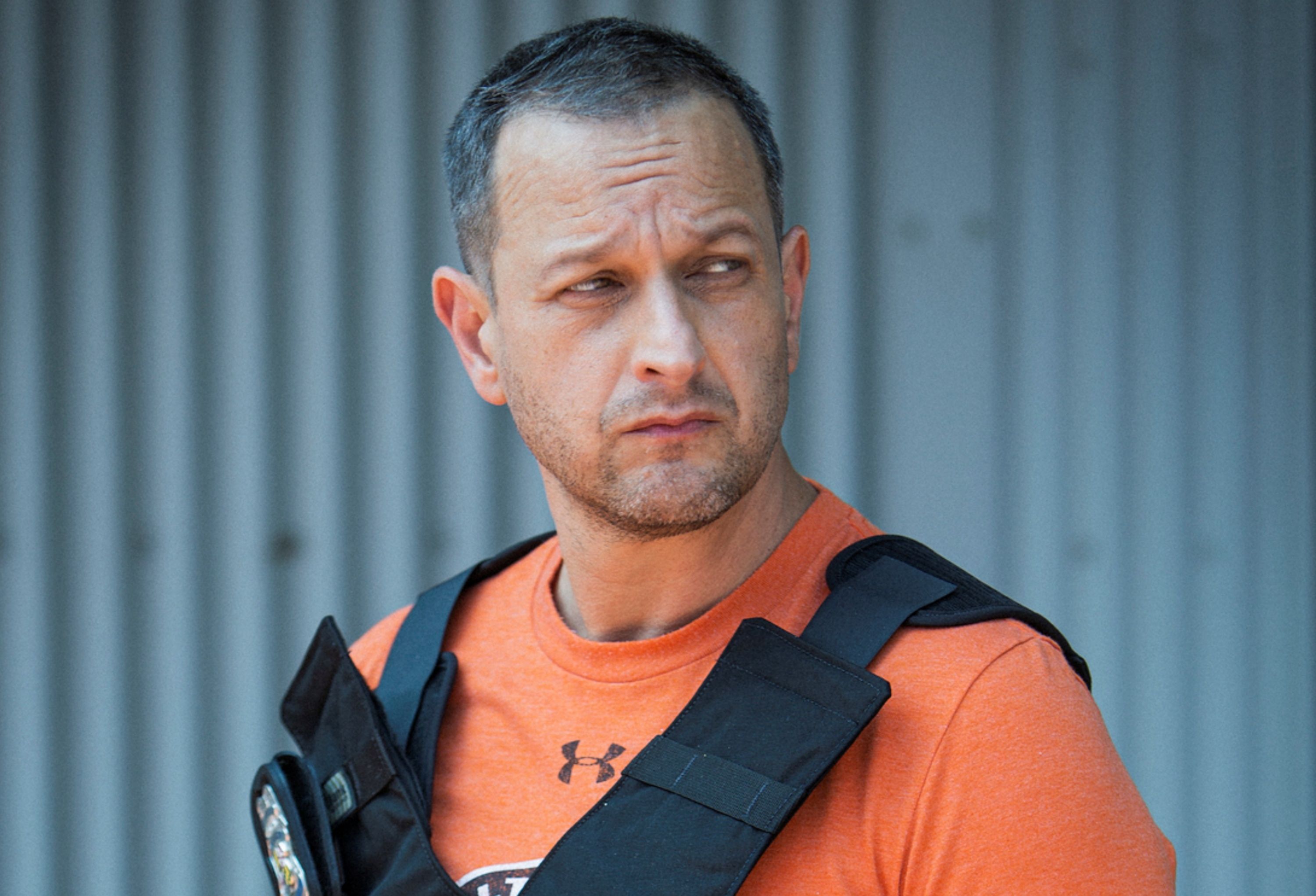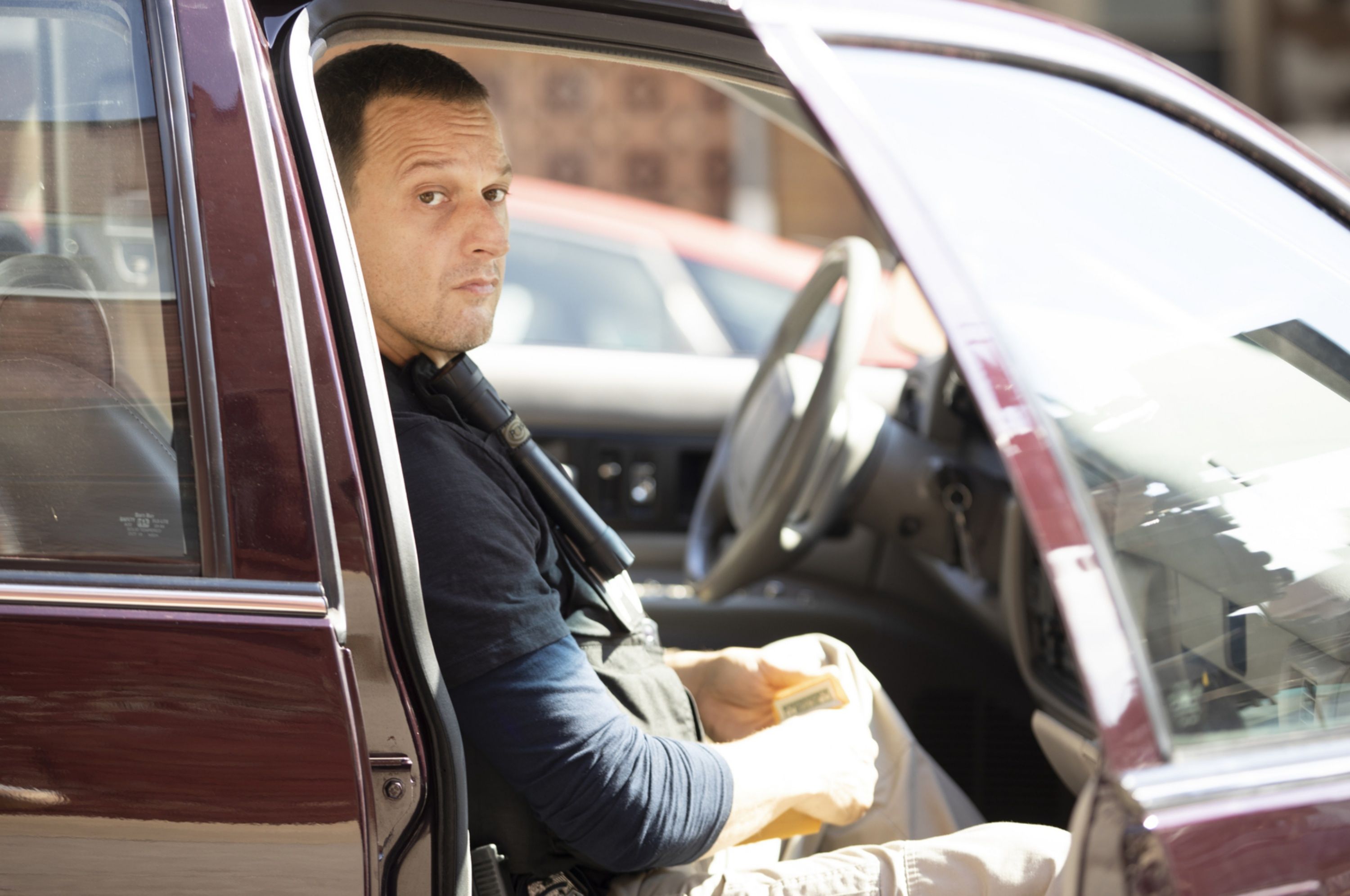[Editor’s note: The following contains spoilers for the season finale of We Own This City.]From executive producers George Pelecanos and David Simon, and based on the book by Baltimore Sun reporter Justin Fenton about the corruption that led to the collapse of the Baltimore Police Department’s Gun Trace Task Force, the HBO six-episode limited series We Own This City illustrates what happens when results are prioritized over actual police work. After decades of a relentless drug war that resulted in mass incarceration, Sgt. Wayne Jenkins (Jon Bernthal) was at the center of the unit that went rogue, brutally pursuing citizens and drug dealers for their own gain.
During this interview with Collider, co-stars Josh Charles (who plays Daniel Hersl, a brutal Baltimore cop on the GTTF) and Jamie Hector (who plays Sean Suiter, a Baltimore homicide detective caught up in the GTTF case) talked about why they felt this was a story that needed to be told, how they felt it was in the hands of the right creative team, really understanding who these men were in this moment, how difficult it was to do some of the more intense and brutal scenes, and how they moved on from an experience like this.
Collider: I love the projects that David Simon and George Pelecanos do because they always make me feel smarter since I always learn something, but at the same time, they also always make me angry and frustrated and sad, as well.
JOSH CHARLES: I feel the same. You said that perfectly.
How did you guys get involved with this? Was it just a script that came your way?
CHARLES: What was compelling to me was that this is such a wide net, this story. I knew this story well, from Justin [Fenton]’s reporting and from the book, and there was this sense of, “How are you gonna weave this all together?” George and David, and their team of writers, are the perfect people to be able to weave this story because it’s so multi-layered and there are so many things happening. There are so many chess pieces moving around. Reading it, I would follow it, but I would go, “Oh, right, I see where this piece is coming here.” You needed that very deft ouch, which these guys are exquisite at. It’s also a realm and a world that they know so well. I was excited to be a part of it because I knew the story, but also because I knew they would do it justice and they would bring the nuance and depth to it that it needs. There’s a complexity to it. It’s not a very black and white story. It very much lives in that murky world, and they’re the perfect writers for that.
JAMIE HECTOR: To piggyback on what Josh just said, which is basically what you said, you walk away from the material that David and George and Nina [Noble] create and you feel smarter. Hopefully, it motivates you to actually wanna do something about it, in a way that’s gonna shift things. When given the material, after reading the book, I was excited to be a part of it because I knew who was creating it and what they were capable of, I felt like it was a story that needed to be told, and I just fell in love with the life of Sean Suiter. Sean Suiter was born on October 8th, and I was born on October 7th, which I found interesting. All those little things that might not mean something to someone else, mean a lot to me, especially when approaching a character. I just felt like this was a story that needed to be told.
Jamie, what was it like to figure out someone like Sean Suiter? He’s a more subtle character than some of these other characters, so did it make it challenging to get a read on him?
HECTOR: Listening to the tapes and listening to his voice, he was on the stand, and they were asking him questions about a shooting of a young girl that took the place, and the way that he was able to have a conversation with someone and take his time, it was like he was considering the person that was asking a question, and he was considering the question and whether he was gonna answer it. He would really get you to let your guard down. And just by listening to all of the tapes, I realized that the conversation that he had while he was on the stand was the same conversation that he would have, in the same tone that he would keep when having a conversation with his partners, even when cracking jokes, and when he was having a conversation with his family.
I can only reference it, in regard to music and dropping into a beat. There was a certain tone and tempo that he spoke with, that he carried through his life and the way that he moved. He could go slow with everything, knowing that he was gonna reach the destination. He didn’t have to go fast. He could go slow and steady, step by step. He could watch and learn and listen, and then execute. That seemed to be the way that he moved, his entire life. We spoke about how he was raised and how he transitioned into law enforcement by way of the Army, and then the Army Reserves, and then law enforcement. Approaching Sean Suiter in that way, it made it really clear to me that he was a calm, detail-oriented person.
Josh, actors always talk about not judging their characters, but is it different when you are playing someone who’s a real guy who really did these things? Do you try to find a way to understand him? How do you approach trying to figure him out?
CHARLES: It’s a good question. The reason actors talk about that is because it’s not helpful to get into someone’s shoes and think of them that way. It’s not for any moral reasons, but it’s because the person that is usually in that situation does not view themselves that way, and you need to step into their shoes and understand them. I had to work with what was in these scripts. Where does he fit into the story and what part of the story is he helping to tell? He didn’t speak to the detectives when he was arrested, early on. We found out later that he did do proper sessions, but at the time, they didn’t know that. In the narrative piece of the show, where people have been arrested, they’re being interviewed and that’s how we get into the story. You don’t have the benefit of that with Hersl. You don’t get to his point of view the way you do with some of the others, and because of that, you hear about him a lot more.
I thought that they created the exposition of Hersl really well. They gave me a really great scene, at the end of episode two with Wunmi [Mosaku], where she comes to see me in my neighborhood. He’s a guy who’s actually from Baltimore proper. I don’t think any of the others are, in the Gun Trace Task Force. How do you get in there and understand it? I think they wrote that scene exquisitely. He expresses a point of view that you may not, or I may not agree with, reading it, but it’s a very valid point of view. It’s a point of view that he feels strongly about, and he’s not alone in that. There are a lot of other people in that field that would feel the same. And so, I have to get behind that and play that, in that moment, because that’s my role in telling the story.
This guy did things that I think are horrible, but I have to throw that out because that’s not helpful to me. And also, in the research for it, I found out a lot of information about him that I’m not actually interested in sharing in a public form, but that was surprising to me. Having those secrets as I was playing the role was a way to try to round him out. That scene went a long way toward that. You see a little glimpse into his world and how he operates, and what it would be like with people that like him and think he’s great and that he makes laugh. It’s much different than what you see and what you hear and what he is on the streets.
What was it like to do those scenes on the streets? Did you talk to those actors ahead of time? Did everybody know what the deal was, going into those moments, so that you didn’t have to spend a lot of time talking about it?
CHARLES: Honestly, it was difficult for me, and I’m thinking about one scene, in particular, that was very violent. It was triggering for another actor that was working on the show in the scene. He was actually playing my partner in the scene, and it was very triggering for him, based on things that had happened in his life recently. And the actor that I had to physically apprehend and abuse in the scene, it’s challenging. We were getting along fine as co-actors, but then you have to go and do this, and it’s very emotionally draining. At the end of the day, you’re living as truthfully as you can in imaginary circumstances, but in this instance, they actually did happen. I don’t see how you can go through that and not have it affect you. Particularly that day, because of the other actor being very affected by it, I was, in turn, even more affected by it. For a couple of days, I kept thinking about that. It was an intense experience. The crew and the cast and the production worked really hard to make sure everybody was safe and respected, and we handled it in the appropriate ways, but nonetheless, you still have to play the scene truthfully, and that felt pretty intense.
Jamie, what was it like for you to figure out and understand where your character ended up and how he got there? Your character is in this gray area, where it seems like there are never really going to be any final answers.
HECTOR: It’s something that you really don’t understand, diving into that unknown world and clearly not coming back. Fortunately, I was able to learn everything that I did, up until that point. Past that point, you get stuck. Was Sean dealing with any kind of depression? Not based on my research. Not based on my conversations. Was he a genuine person? Based on my research, yes. So, leading up to that place, it’s about trying to understand what happened, based on the material that I was given and the footage that I saw, and the conversations that I had with all the people around him. I just lived in the moment of how people shaped it. The best part about the material is that it’s what people said about him, and for the most part, they said great things. It was difficult to understand. There was a moment that the camera down the block caught him behind the van, pacing back and forth, before the moment of his death. That was challenging, in its own way. I know what’s gonna happen, based on knowing the material, but you’ll never understand it, and you can’t really explain it.
How do you guys let go of something like this, when you finish with it, especially when there’s no answer for any of this, and we haven’t really gotten very far from it?
HECTOR: HBO and the production were proactive and thoughtful enough to have a conversation with all of us, in regard to the material and how to deal with it, and how to let go of the energy and everything that we experienced. We would constantly get on Zoom with a young lady who would talk about therapeutic ways to deal with this material, how heavy the material is, how it was affecting us, and how to shed it and let it go. You don’t wanna bring that stuff home with you. Thank God it was an ensemble cast because we’d shoot for a day, and then not have to shoot again for another week.
We Own This City is available to stream at HBO Max.

